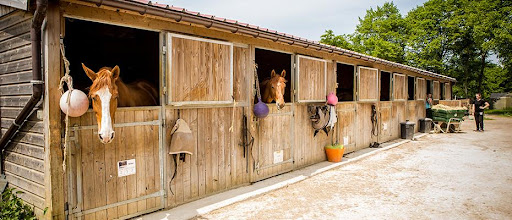Horse boarding is a service provided by equestrian facilities, often referred to as horse boarding stables or horse boarding farms, where horse owners can keep their horses on the premises in exchange for a fee. The primary principle behind horse boarding is to provide a safe and well-maintained environment for horses, allowing them to receive proper care and attention, even if the owner doesn’t have the facilities or time to care for the horse themselves. Here’s how horse boarding typically operates
- Facility Types
There are different types of horse boarding facilities, each offering varying levels of service. These can include full board, partial board, and self-board options.
Full Board: In a full board facility, the horse owner pays a monthly fee, and the facility takes care of nearly all aspects of horse care, including feeding, stall cleaning, turnout, and basic healthcare.
Partial : Board Partial board facilities may offer a mix of services. For example, they might provide feed and stall cleaning, but the owner is responsible for other aspects, such as turnout or grooming.
Self-Board : Self-board facilities offer a stall or pasture space for the horse, but the owner is responsible for all aspects of care, including feeding, cleaning, and healthcare.
- Amenities
Horse boarding facilities often have various amenities and services, such as
Stalls or Pasture: Horses can be housed in individual stalls, run-in sheds, or pastures, depending on the facility and the owner’s preference.
Feeding : Proper feeding is crucial, and facilities typically offer hay, grain, and water as part of the boarding service. Special dietary needs can often be accommodated.
Turnout : Horses need exercise and social interaction. Facilities may have pastures or paddocks where horses can be turned out for exercise and socialization with other horses.
Riding Facilities : Many boarding facilities have riding arenas, trails, and other areas for riding and training.
Healthcare : Basic healthcare services, such as deworming and vaccinations, may be included in full board arrangements. For partial or self-board, owners are usually responsible for arranging healthcare.
Tack Storage : Boarding facilities often provide a secure area for storing tack and equipment.
- Fees and Contracts
Boarding fees can vary widely based on the location, level of service, and amenities offered by the facility. Typically, horse owners sign a boarding contract outlining the terms, responsibilities, and costs associated with the arrangement.
- Communication
Effective communication between the horse owner and the boarding facility is essential. Owners should regularly communicate their horse’s needs, preferences, and any special instructions to ensure proper care.
- Safety and Maintenance
Boarding facilities are responsible for maintaining a safe and clean environment. This includes regular stall cleaning, pasture maintenance, and ensuring that horses have access to clean water.
- Visitation
Owners generally have the right to visit and spend time with their horses at the boarding facility. Visiting hours and rules may be specified in the boarding contract.
Horse boarding operations aim to provide a home away from home for horses while allowing owners to enjoy the benefits of horse ownership without the full-time commitment of caring for their animals. The specifics of how a particular facility operates can vary, so it’s important for horse owners to choose a boarding facility that aligns with their horse’s needs and their own preferences. For more informations, you can visit horsecare24
